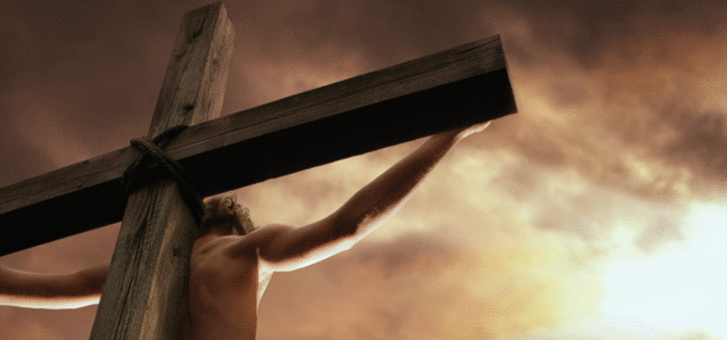What is the reason behind the Christian celebration of Easter? Alison Buckley finds out.
You know the feeling of satisfaction that you get when you’ve just washed and polished the car, cleaned the house, tidied your office or lifted a golden home-baked loaf of bread from the oven. Your car looks like new, your house smells fresh, you can find things in your office and your mouth is watering at the prospect of a thick slice of thickly buttered fresh bread. Or perhaps you’ve just received an A for a class assignment or completed a piece of intricate handiwork.
It is possibly a feeling akin to that felt by the three members of the Godhead—the Father, Son and Holy Spirit—after working for six days in a remote corner of the universe, as they surveyed their work.
The earth and all living and non-living things in it revealed the Creator’s handiwork. Everything was perfect. The animals and plants had no defects, nothing died and the weather was always balmy. Food was abundant for all living things and there was absolute peace and harmony. It was a fully complete planet, lacking nothing.
On the seventh day, God visited the man and the woman who were to be the parents of the new race. He taught them the first of many lessons about the world He had asked them to look after. Together, they marvelled at the fragrant flowers blooming, the luscious fruits to eat, the lofty trees providing evening shelter, the playful animals living with them in their home, the birds providing sweet music and the fish splashing in lakes and rivers.
Disobedience
In the middle of this beautiful garden the man and woman called home were two special trees. One was the tree of life, the fruit of which they were told they could eat freely at any time. The other was the tree of the knowledge of good and evil. God had told them, “You must not eat from the tree of the knowledge of good and evil, for when you eat from it you will certainly die” (Genesis 2:16, 17).
Sadly, and like many today, they did exactly what they were instructed not to do—they ate the fruit. Immediately, they panicked and tried to cover up their mistake, but they had changed, and so had the whole earth (see Genesis 3:6, 7). Because of their rebellion, everything would die.
God told them that “by the sweat of your brow you will eat your food until you return to the ground, since from it you were taken; for dust you are and to dust you will return” (verse 19).
But God already had a plan in place for such an eventuality. He had decided, even before the world was made, that Jesus would take the punishment should the people of earth so rebel: “For the wages of sin is death, but the gift of God is eternal life in Christ Jesus our Lord” (Romans 6:23).
So that evening, He went to the guilty pair and began introducing them to His plans for their salvation (Genesis 3:15). Then He took a lamb and “made garments of skin for Adam and his wife and clothed them” (Genesis 3:21). This simple sacrifice was the first of many that symbolised Jesus presenting Himself as an unblemished, innocent offering for the mistakes and wrongdoings of every person.
Although it would take 4000 years to complete the “offer,” Jesus’ death on the cross sealed the work of saving humans from death and all other evil. It also sealed the fate of Satan, the enemy of God and humankind, who had deceived the woman about the consequences of taking the fruit.
An Ongoing Plan
Because of His finished work on the cross, Jesus today works on behalf of His people in the heavenly court.
Since no human in their sin-affected state can ever approach God—not even to ask for forgiveness—Jesus presents the sacrifice of His perfect Self for each one who puts his or her faith in Him, claiming His death on their behalf, in the rendering of justice—“He became the source of eternal salvation for all who obey him” (Hebrews 5:9).
So, “Since we have a great high priest who has gone through the heavens, Jesus the Son of God, let us hold firmly to the faith we profess."
“For we do not have a high priest who is unable to sympathise with our weaknesses, but we have one who has been tempted in every way, just as we are—yet was without sin” (Hebrews 4:14, 15).
Jesus covers our sinfulness with His righteousness. God in His love sees His people through the finished work of His Son, seated at the place of honour at God’s right hand.
If we believe, Jesus, through the presence of the Holy Spirit, will give us power to practise His attitudes and behaviours. This means living a changed and changing life, always complete in Him. It is like a rose—perfect in its bud and in each of its developing flower stages.
Completion
Although it has seemed like an interminably long time since that great event on the cross, Jesus said that He is preparing another perfect environment in a new earth for His followers. He promised, “My Father’s house has many rooms; if that were not so, would I have told you that I am going there to prepare a place for you?” (John 14:2).
The apostle John, in his vision of the end of this world and its restoration as a new world, said, “Then I saw a new heaven and a new earth, for the first heaven and the first earth had passed away, and there was no longer any sea” (Revelation 21:1). That will truly be Christ’s finished work—a restored world for us to enjoy through all eternity.
The work for our future in heaven is already finished. All we have to do is take advantage of Jesus’ offer to “approach [God’s] throne of grace with confidence, so that we may receive mercy and find grace to help us in our time of need” (Hebrews 4:16).
And when Jesus returns to earth for the second time to bring us home, He “will say to those on his right, ‘Come, you who are blessed by my Father; take your inheritance, the kingdom prepared for you since the creation of the world’ ” (Matthew 25:34).






